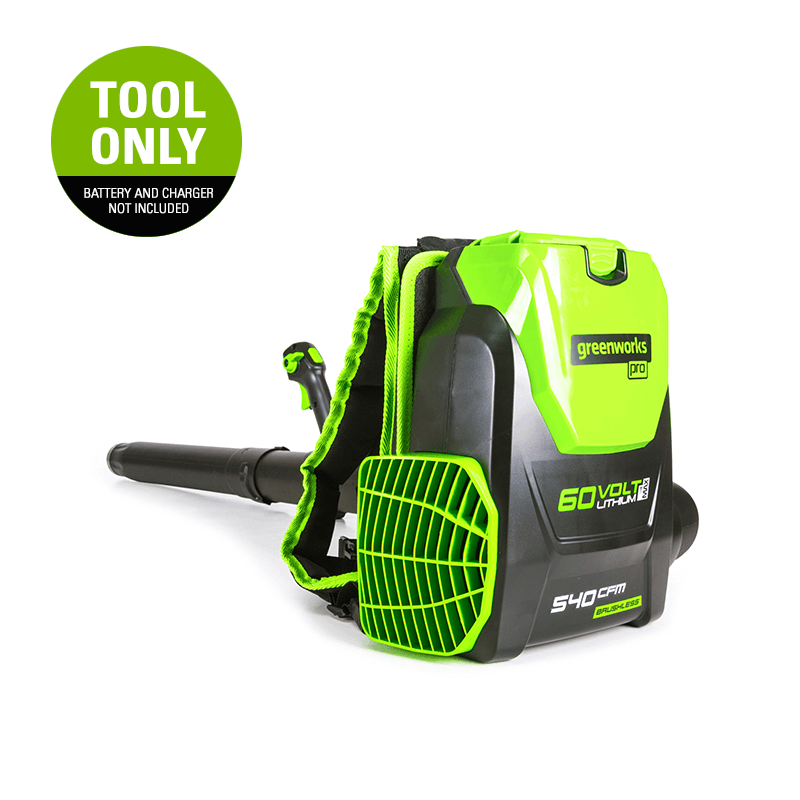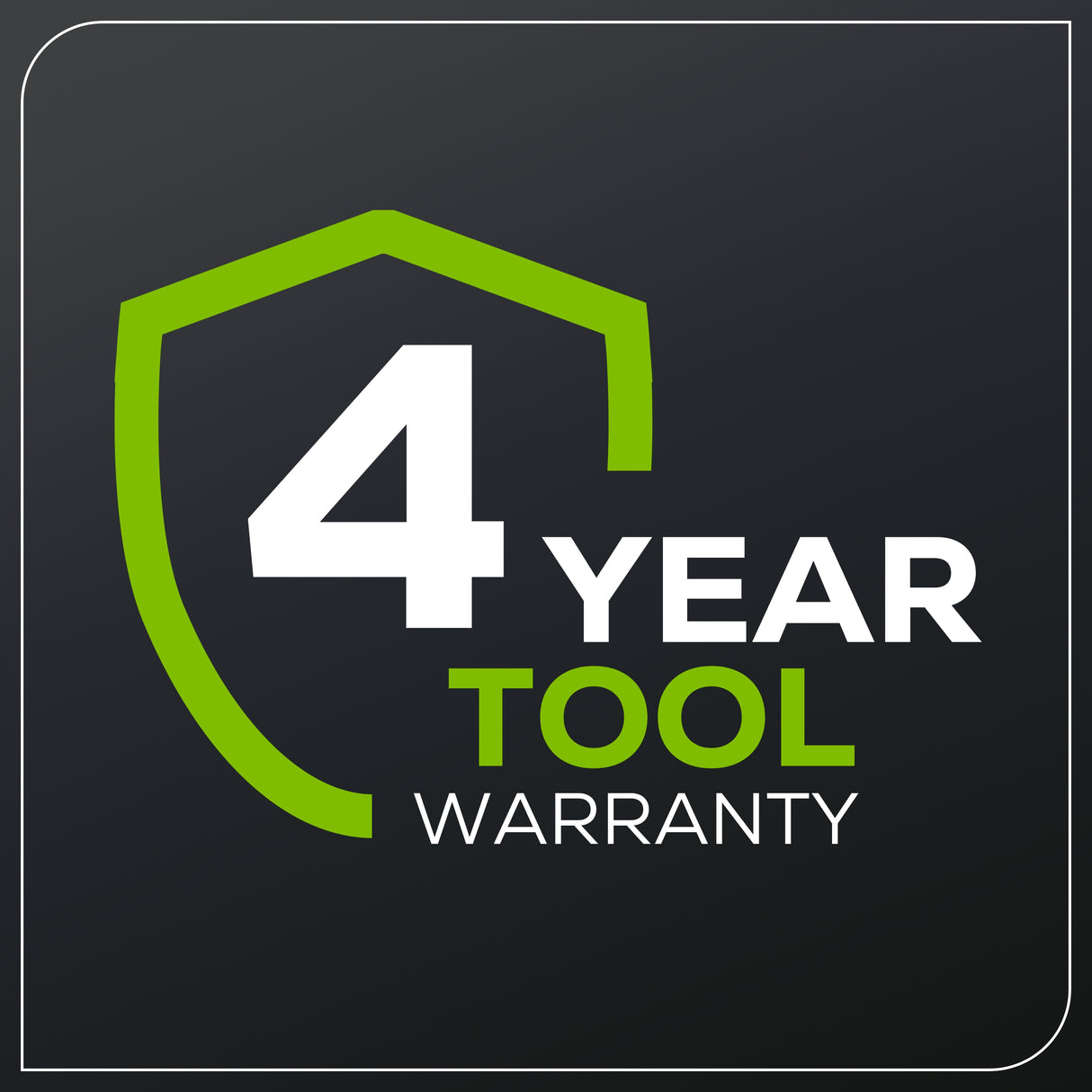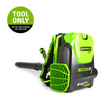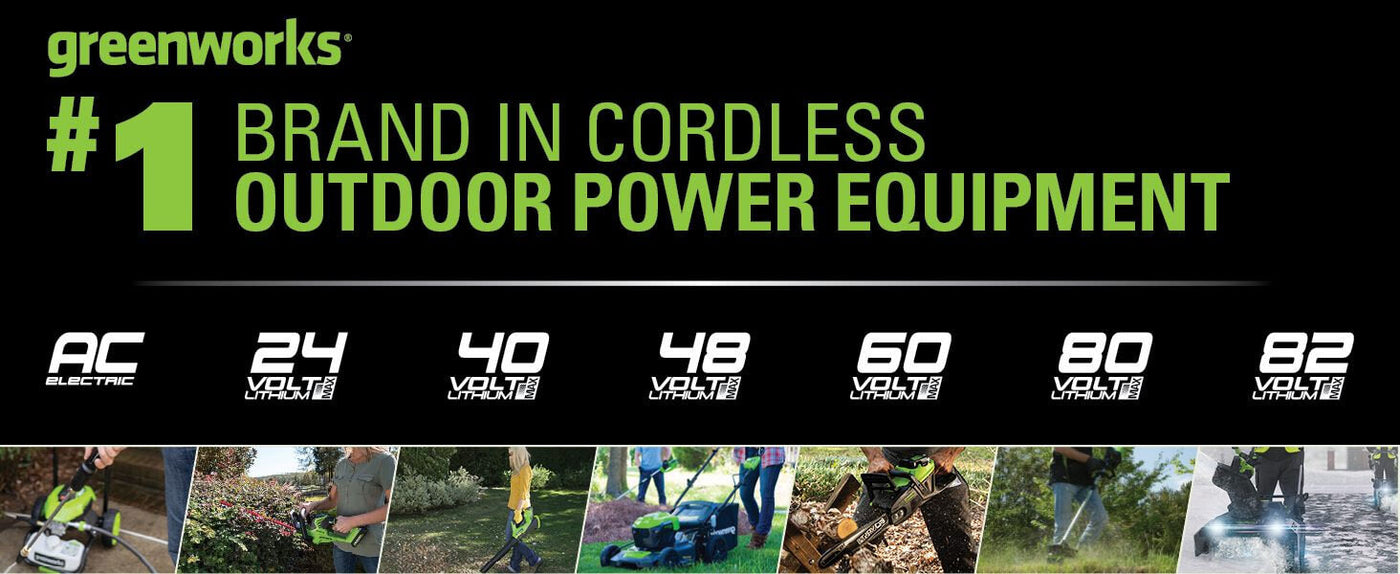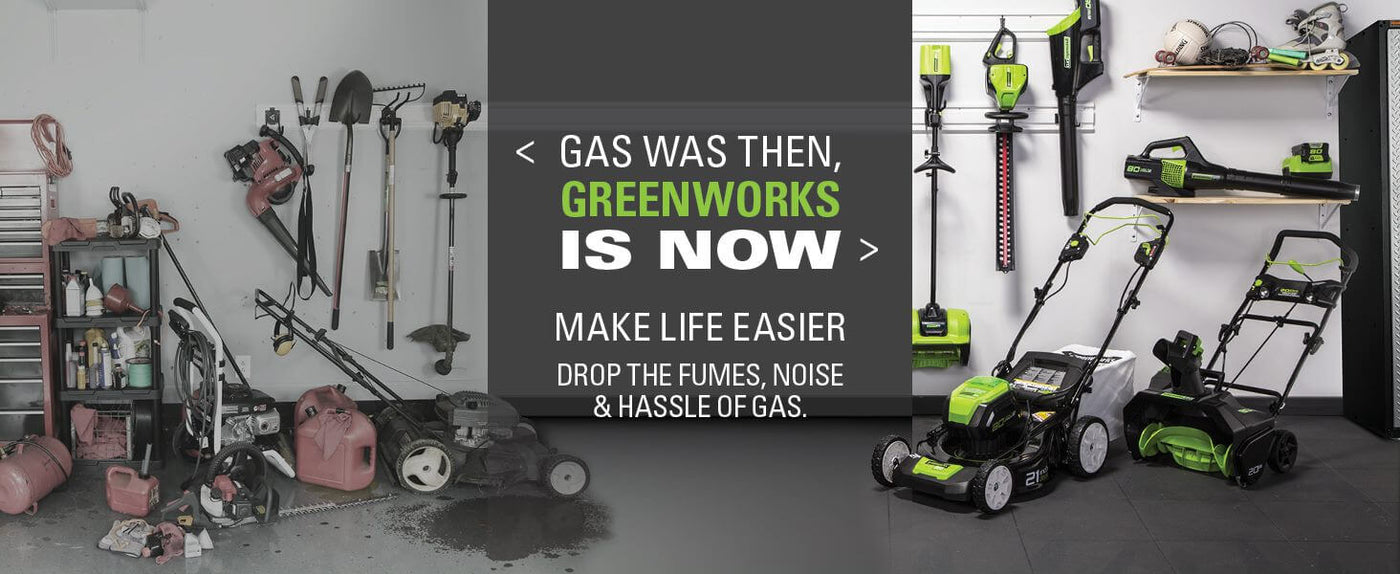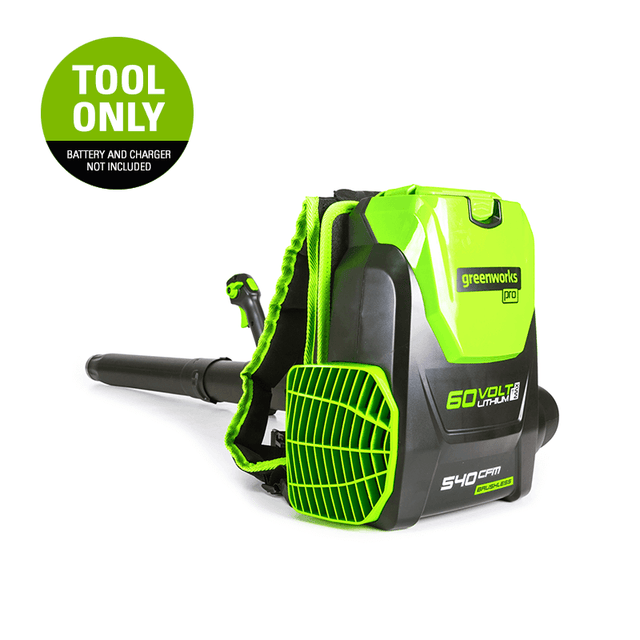Souffleur à dos sans balais 60 V, 140 MPH - 540 CFM (Outil seulement)
Souffleur à dos sans balais 60 V, 140 MPH - 540 CFM (Outil seulement) est en rupture de stock et sera expédié dès qu’il sera de retour en stock.
Garantie
Garantie

Compatible With :
Description
Description
Pour les propriétaires qui souhaitent bénéficier des avantages du sans fil pour les travaux de jardinage quotidiens, mais qui veulent également avoir la confiance nécessaire pour entreprendre des projets parfois difficiles et plus difficiles, la famille d'outils Greenworks Pro 60V est le choix idéal. Conçu avec une construction et des matériaux de service moyen/lourd, des moteurs à haut rendement et un système de batterie universel de 60 V qui fonctionne sur plusieurs produits, vous disposez d'une puissance équivalente à celle du gaz pour vos tâches typiques du samedi. La puissante plateforme de batterie sans fil Greenworks Pro 60 V vous offre toute la puissance dont vous avez besoin pour affronter tous vos projets d'entretien de pelouse. Donnez un coup de pouce au trottoir et passez au vert sans fumées, sans mélange, sans entretien et sans cordons de traction. Laissez Greenworks vous aider à simplifier les travaux de jardinage.
Spécifications
Spécifications
-
Voltage60 V
-
Poids9,4 livres
-
Dimensions du produit assemblé58,0 po. × 19,2 po. × 12,9 po.
-
Dimensions de l'emballage22,4 po. × 22,4 po. × 8,6 po.
-
Poids du colis13,8 lb. (6,3 kg)
-
BatteriesNon incluses / Vendues séparément
-
MoteurSans balais
-
Puissance nominale du moteur1,12 kW
-
Conception du ventilateurAxial
-
Vitesse maximale de l'air (MPH)160
-
Volume d'air maximum550 CFM (pi³/min)
-
Déclencheur à vitesse variable ?Oui
-
Bouton TurboOui
-
Régulateur de vitesseOui
-
Poignée rembourréeOui
-
Niveau de bruit à 50' (longue portée)72,8 dB
-
Temps d'assemblage estimé≈ 15 minutes
-
Garantie4 ans de garantie
Manuels
Manuels
Vidéos de produits
Foire aux questions
Foire aux questions
- Do you make Gas Blowers?
- Is a battery powered leaf blower quieter than gas?
- What is more important MPH or CFM?
- What is the most appropriate blower for my property?
- Can I use my blower to dry my car or blow snow off my driveway?
- What is the difference between a hand blower and backpack blower?
- How do I use the mulch function with my blower/vacuum?
- Why is dust coming out of my collection bag while using my Blower?
- Why is my vacuum not collecting garden debris?
- What blower can I use for Hard surfaces?
- What is the battery life and how do I maximize it?
All Greenworks leaf blowers are cordless, battery-powered blowers or corded. Greenworks does not make gas-powered models.
Electric and battery-powered leaf blowers – in general, are quieter than gas models. DB rating does depend on the model. Depending on the yard you intend to work on, the airflow coming from the device can be a primary factor as well.
Both CFM and MPH have their benefits. It would depend on which type of blower you’re looking for. MPH is an abbreviation of miles per hour. This denotes the speed at which the air exits the blower. Higher MPH figures produce large pressure changes at the blower inlet. Therefore, a higher MPH is beneficial when looking at blower/vac units. MPH is usually the more important stat here as a higher airspeed helps move heavier debris. CFM is an abbreviation of cubic feet per minute. This denotes the volume of air displaced by the blower. High CFM units tend to move large air volumes at relatively low speeds allowing large areas to be swept and cleared in a controlled, shorter time. Therefore, axial blowers/dedicated blowers benefit more from a higher CFM and is more desirable for these units
Generally, electric leaf blowers have a CFM falling somewhere from just under 200 to 400. If your property is an acre or more, you will probably want a leaf blower with a CFM between 400 to 700
We do not recommend using this blower for any task other than leaf blowing.
Hand-held blowers are often less expensive than backpack blowers. They have smaller motors to ensure they're not too heavy to carry. Since the motor is smaller, they have less power. These blowers are great if you have a small yard, but can be taxing if you’re spending 30-40 minutes on the job. Backpack blowers provide more power, and you can carry them wherever you go. They have the added benefit of being more ergonomic since you are not relying solely on arm strength. Backpack blowers are better for tackling large jobs, but they’re also more expensive than the hand-held blower
When mulching leaves the Blower/Vac must be in TURBO-MULCH mode. Items such as small leaves and twigs will be mulched as they pass through the fan housing. We recommend emptying the bag after each use to avoid deterioration and obstructing air flow, which will reduce the performance of the mulcher.
There are tiny holes in the collection bag that are necessary for the operation of the Greenworks collection bag. These will allow very small particles of dust to pass through.
If your blower is not easily picking up the leaves, ensure that the nozzle is close enough to the leaves. Also make sure that the mode indicator is on the correct setting. Press the low/high switch to increase the speed options. The unique design of the blower-vac means that only light weight, low density objects such as leaves, and garden debris will be collected. It’s worth noting, higher density objects such as stones and sticks will not be collected. If you are finding the unit is still not picking up it may be necessary to remove the blower tube or mulcher tubes to clear a blocked tube or impeller. Please be sure to remove the battery or unplug the unit before checking the tube or impeller.
The best push power for removing heavy or wet organic materials from soft surfaces like grass, dirt or sand will come from a corded electric blower or from our 80V PRO blowers. The 80V 580 CFM Brushless Backpack Blower, with up to 580 CFM at 145 or the 80V 500 CFM Cordless Brushless Axial Blower with up to 500 CFM of air flow both units offer more CFM
To get the most life out of your battery, you should remove it from the charger once it has finished charging. The problem with overcharging is the potential damage to the battery which can shorten its lifespan and leave you in a lurch if it quits in the middle of a project.

